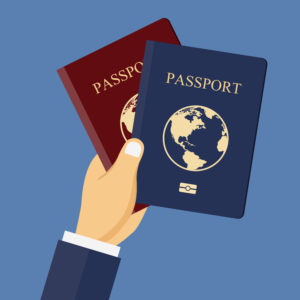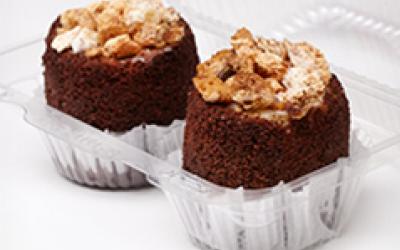The share of chain brands in food retail sales exceeded 10%

Private labels began to grow actively even during the coronavirus pandemic: in the period from May 2020 to April 2021, their share in sales reached 5.3% against 4.7% the year before. Then NielsenIQ emphasized that this indicator is the highest in the last five years.
The growth in the share of private labels in the total retail turnover is confirmed by data from other studies. Thus, SberCIB analysts recorded that the number of private label buyers in Russia increased from 21.3% to 37.5% in the fourth quarter of last year, Vedomosti wrote. And Romir found out that over the past seven years, the share of private labels in the Russian retail market has increased by almost 3 percentage points and reached 7.2% by 2022. According to NTech analyst Tatyana Erofeeva, in large retail chains, the share of private labels last year was 18%, and by the end of 2023 in the Perekrestok and Pyaterochka chains, it can reach 26-27%.
The information and consulting agency InfoLine estimated the share of private labels at the end of 2021 at 9%. “In 2022, this share only grew: it’s too early to sum up the results, but, according to our estimates, it will be no less than 11-12% of the total product turnover,” said Ivan Fedyakov, head of InfoLine. - This actually means that private labels account for almost 1.5 trillion rubles. retail trade". He draws attention to the fact that the annual revenue of the Russian division of PepsiCo, one of the leaders in the food production segment in the country, in 2021 exceeded 250 billion rubles, and the revenue of the X5 Group (manages Pyaterochka, Perekrestok, Karusel, Chizhik) from the sale of private label alone for the same period amounted to 340 billion rubles. At the end of last year, Fedyakov believes, PepsiCo's revenue in Russia remained at the level of 2021,
The presence of private labels in retail chains
In 2022, retailers were actively developing their own brands, expanding their lines and launching new brands. Last year, METRO added 430 new PL food items to its portfolio, expanding its range of frozen products, groceries, and confectionery, the press service of the retail chain said. “The main vector for the development of private labels in 2022 was the replacement of products from departed brands. Many categories, such as capsule coffee, alternative milk , have been specifically created to meet the needs of customers, ”added a representative of the retailer. In general, in the 2021-2022 financial year, the share of private labels in METRO sales increased by 2.4% and reached 14.7%.
The Yandex Lavka food delivery service launched more than 200 private labels in 2022, and the total share of sales of such goods remains consistently high at about 16%, the press service of the Yandex Go food tech direction commented. Among the new private labels there were both classic and unique positions - honey pot (a combination of honey cake and Ant Hill cake), chocolate sausage, coffee in easy bags. Thanks to the unique assortment, Yandex Lavka sets itself apart from other retailers and expects to increase user loyalty.
In Magnit, the share of private label sales reached 20% last year, the chain's press service said. Sales dynamics vary by category, with sales growth recorded in almost all categories. Thus, the share of private labels in the sales of fruits and vegetables added 3.6 p.p. and amounted to 19%, while sales themselves increased by 42%. The share of private labels in sales of the ultra-fresh category increased by 2 p.p. up to 22%. Sales of private labels in the grocery, canned food, and confectionery categories increased by 34%.
The food assortment of Magnit includes over 2,000 private label items. In total, the retailer launched over 700 new private label products in 2022, including non-food items. One of the drivers of development was the category "Vegetables and Fruits". Magnit expects to increase the share of private labels in turnover to 25% by 2025. To do this, the network intends to expand its brand portfolio to 50 items, including occupying free niches due to the departure of some foreign brands.
The X5 Group's blog on VC, published in September last year, stated that since the beginning of the year, the number of private labels at Perekrestok has increased by 20%, and their sales by 30%. In particular, the store has increased the number of positions of the Zelenaya Liniya and Molochny Znak brands.
Last year, the Lenta hypermarket chain opened the first Product Lab test center in St. Petersburg , where the retailer's customers will participate in research on private label products. At the opening of the test center, a representative of Lenta said that 9 thousand commodity items on the shelves of the network belong to private labels, at the end of 2021 their share in sales was 15%. In 2022, the retailer launched new own brands - the Lenta FRESH line and the Delisse brand of confectionery.
Prospects for private labels in Russia
The share of food private labels in Russian retail turnover may reach 15-16% over the next five years, says Ekaterina Kolina, executive director of the research agency IndexBox. The expert draws attention to the fact that private labels are already perceived by consumers not as an incomprehensible cheap analogue, but as a full-fledged brand. She, in particular, gives the example of Charlize confectionery brands and Fish House fish products, which are Pyaterochka private labels, but in the minds of the consumer have already gone beyond this category. “If a brand has been on the market for more than 10 years, then it is bought, it is in demand, it has proven itself, which means, the buyer thinks, it can be taken. And in the face of declining incomes, Russians will pay more and more attention to private labels,” Kolina said.
Ivan Fedyakov also emphasizes that the key driver for the development of private labels is the fall in real incomes of the population, which is why most consumers decide to buy a product at its price, and then compare other characteristics. Taking into account the fact that in their price range private labels are cheaper than national brands, but they are not inferior to them in quality, the demand for such trademarks will continue to grow.
In addition, the share of private labels will increase due to the development of discounter networks, since the business strategy of such stores implies full control of the distribution chain, and the share of private labels on the shelves of discounters should be at least 50%, and in hard discounters it should reach 90%. Now there are not so many such chains in Russia: in the My Price stores (owned by Magnit) and Chizhik, the share of private labels in the assortment is 30-40%, but Fedyakov believes that in the future they will significantly increase this figure.
An active - and in some cases aggressive - policy of retailers in relation to private labels, when only such brands are present on the shelves in networks for some positions, will also contribute to an increase in the growth of their share, Kolina is sure. “Retailers are now a stable player in the market, unlike manufacturers. They have a relatively stable situation and this allows them to develop private labels,” she said.
“Soon there will be no categories where private labels are not represented,” Fedyakov agrees. — There are already private labels in such brand-dependent categories as alcohol and confectionery. And only in categories like fresh, where the brand is not of great importance, private labels will be slightly less. In all other cases private labels are doomed to capture the Russian consumer market. It is important to take this into account both in the strategy of retailers and suppliers, who will become even more competitive with private label chains in the future.”


























































